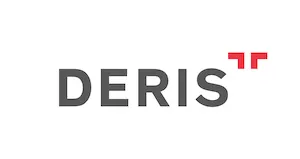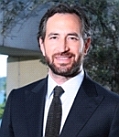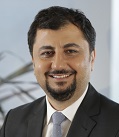IAR CASE SUMMARY TEMPLATE
| Jurisdiction: | Turkey |
| Subject Heading: | I.D.1. Similarity of Marks |
| Case Name and Citation: | UNILEVER N.V. vs ÖMER KARDIGAN, Case No. 2009/27; Decision No.2011/95 (Beyoglu Court of Intellectual and Industrial Rights, June 07, 2011) |
| Plaintiff: | UNILEVER N.V. |
| Defendant: | ÖMER KARDIGAN |
| Marks Associated with Goods/Services: | Plaintiff's MAX trademarks especially registered in classes 29 and 30 and defendant's CANDYMAX trademark no.2007 31735 registered in class 30. |
| Nature of Case: | Cancellation action based on likelihood of confusion due to similarity of marks, on notoriety of plaintiff's trademark and on bad faith of the defendant |
| Prior Decisions: | |
| Overview of Decision and Ruling: | The plaintiff claimed that; MAX is a well-known trademark by supporting such claim with related documents/information, that CANDYMAX is confusingly similar to their worldwide known MAX trademark in their overall in respect of visual and phonetic aspects due to addition of the non distinctive and to the related sector referring word CANDY to plaintiff’s well-known MAX trademark, that specifications of the trademarks are overlapping/directly connected and both of the trademarks are being used for daily consumption products where consumers mostly consist of children and young people who do not pay high attention and do not spend much time during buying these products; that the defendant has acted in bad faith with the aim of taking unfair advantage from the reputation of plaintiff’s trademarks by choosing such similar trademark. And requested from the Court the cancellation of defendant’s trademark registration for CANDYMAX. The defendant claimed that; CANDYMAX cannot be considered as confusingly similar to plaintiff’s MAX trademark only on the basis of the common word element MAX which is used in the subject trademark as the abbreviation of the English word MAXIMUM. Therefore the distinctive and main element of their trademark is CANDY. Furthermore the denomination MAX which is not distinctive as the abbreviation of MAXIMUM shall not be registered as a trademark and monopolized only by one company and shall be open to use by everyone. The existence of many registered trademarks in the Turkish trademark registry containing the denomination MAX supports such fact. And requested from the Court the rejection of the action. In the light of the evidences submitted by the parties and of the expert report which is in plaintiff’s favor, the Court has determined that; the high level of notoriety of plaintiff’s trademark should be accepted, that the defendant has not acted as a prudent business man and has the aim of taking advantage from the reputation of plaintiff’s well-known MAX trademark series; that MAX and CANDYMAX can be considered as confusingly similar to each other in their overall in respect of visual, phonetic and semantic aspects since the essential part of CANDYMAX is the denomination MAX and not the denomination CANDY which identifies the products on which the trademark is/will be used; plaintiff’s registered trademark MAX is not being used as the abbreviation of MAXIMUM but as the name of their well-known lion logo used with their trademark; plaintiff has obtained trademark rights on MAX in respect of food sector due to their registrations and longstanding prior use and therefore it is not possible to accept that use of this denomination is open by everyone; the related consumer group of both trademarks are firstly children and young people who’s attention level is less than average consumers and therefore use of CANDYMAX for goods in class 30 would lead to confusion and to a wrong impression that CANDYMAX belongs to plaintiff’s well-known MAX trademark series. The Court has ruled to the cancellation of defendant's trademark no. 2007 31735 CANDYMAX and deletion of the related record from the trademark registry and prevention of the use of this trademark after the finalization of the cancellation and to charging the defendant to pay all the expenses for the litigation costs. |
| Importance of Case: | We have succeeded in convincing the Court that CANDYMAX trademark was not a newly created word mark (i.e. defendant’s claim was rejected that CANDYMAX is created by combination of two non-distinctive word elements CANDY and MAX- as the abbreviation of MAXIMUM) and not sufficiently distinctive from MAX. This decision is important as the Court has acknowledged the high level of distinctiveness and notoriety of the trademark MAX as such and not as an abbreviation of the word “MAXIMUM”, despite of the contradictions between the first negative expert report and the second positive experts report. |
| Images/Description: | |
| Contributor Firm: | Deris Attorneys At Law Partnership |





